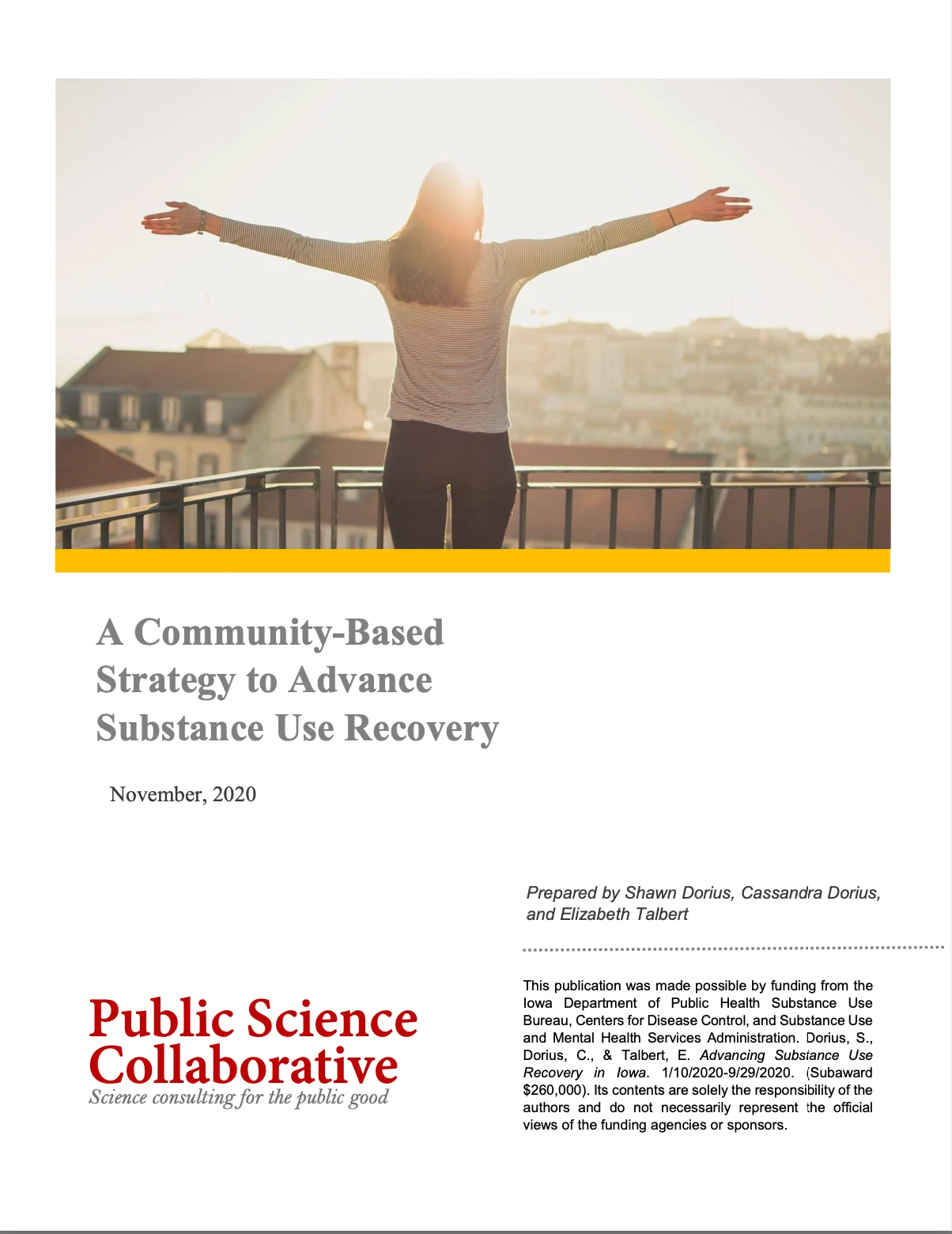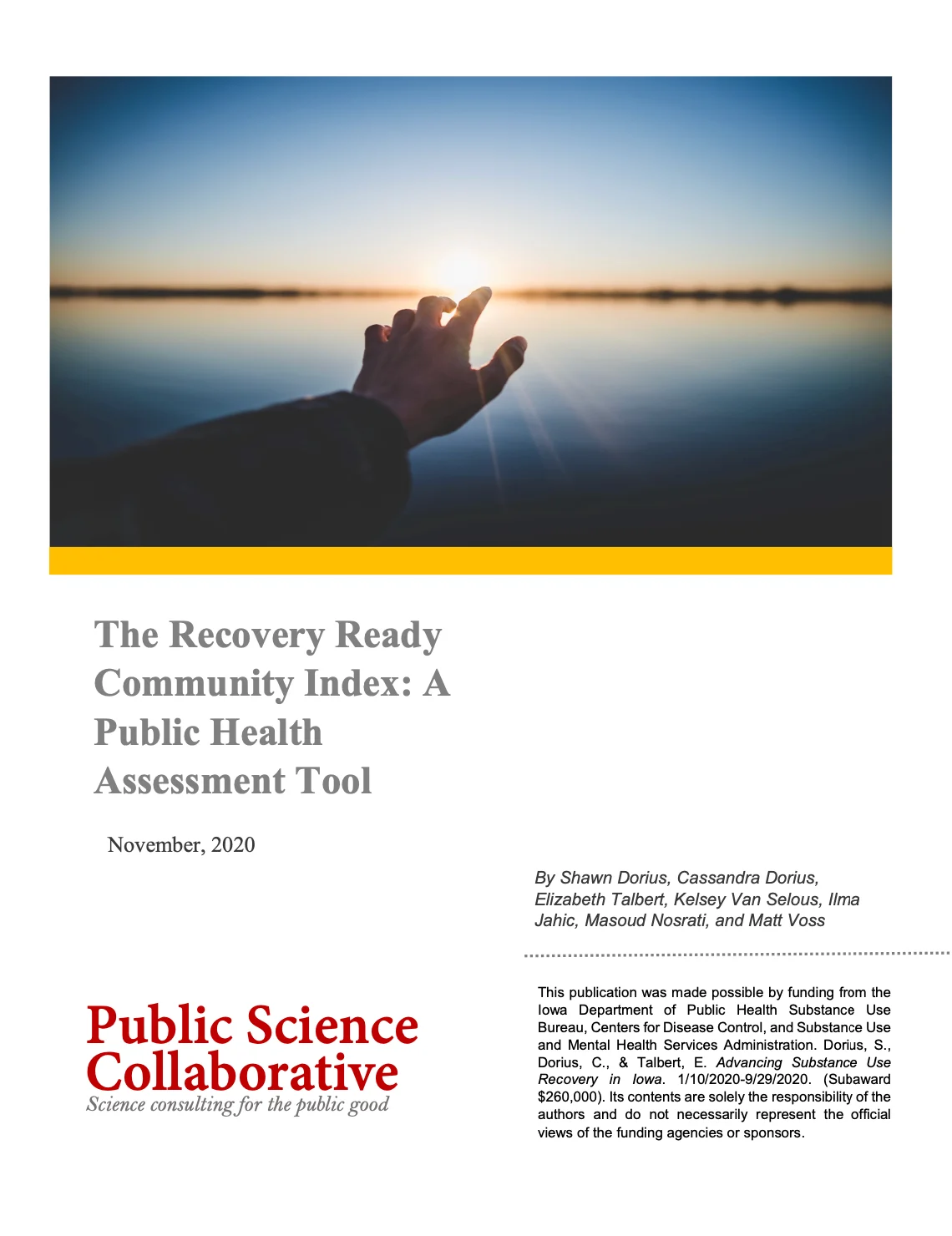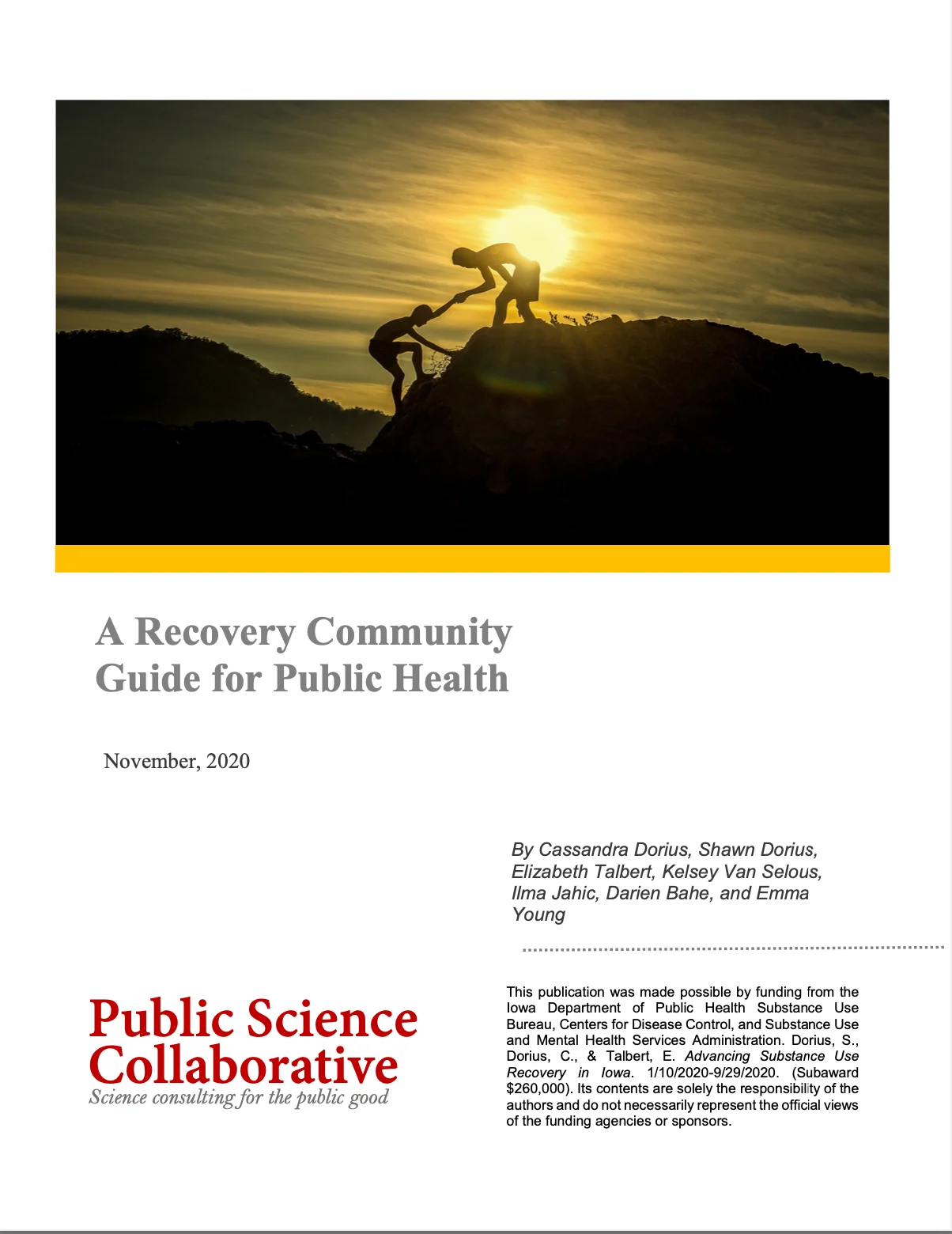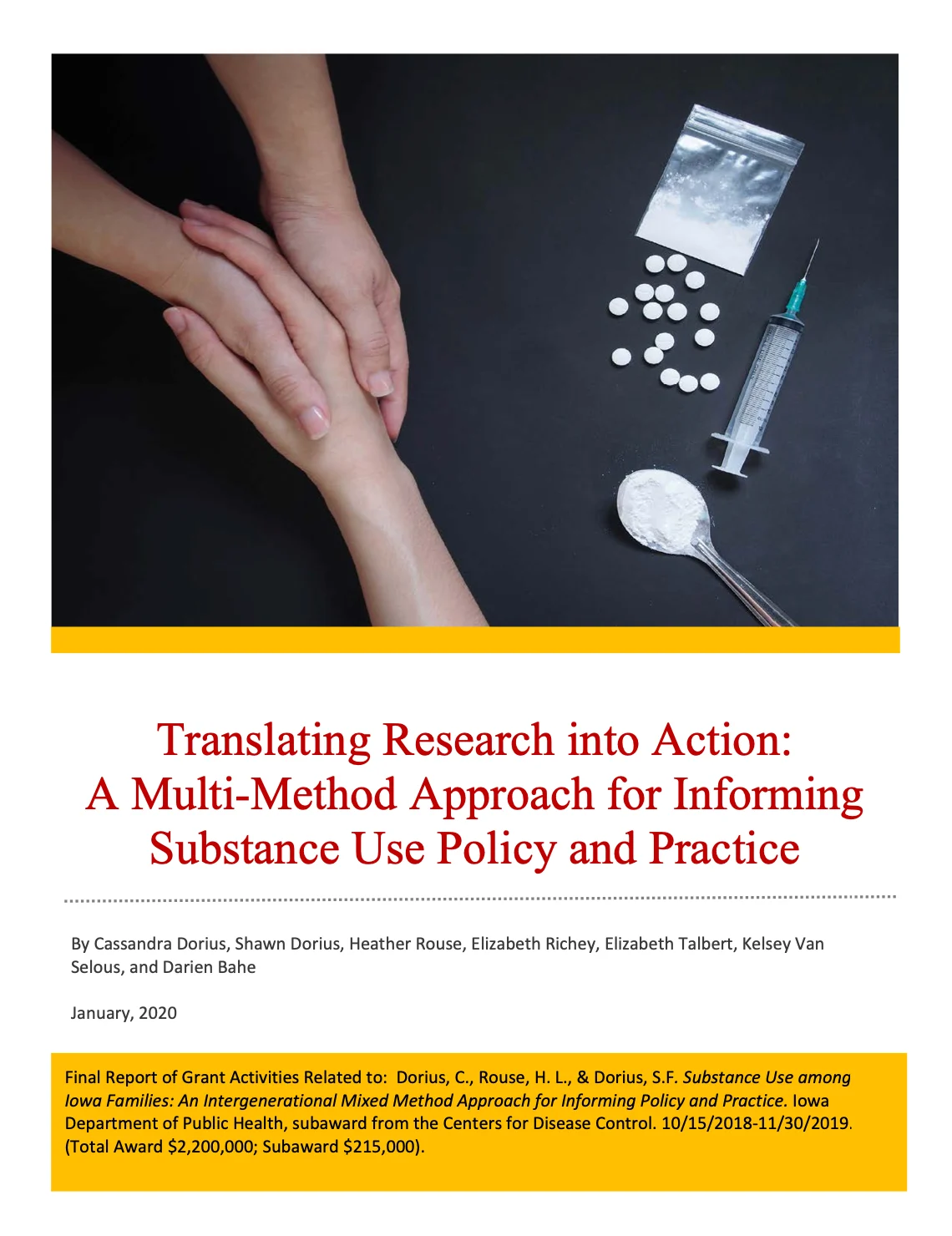In this section, we post somewhat more technical and lengthy reports. These reports include stories from people with lived experience, advice from recovery community center directors from around the country, maps of Iowa’s recovery infrastructure, facts and figures about what kinds of people are entering substance use treatment programs, and some important ways to better support individuals and families and prevent relapse. What marks these reports as distinct from other reports about recovery is that all of the reports posted here are about Iowa.
A Community-Based Strategy to Advance Substance Use Recovery
What did we do?
- The Public Science Collaborative (PSC) analyzed strategic information that would give Iowa the best chance of maximizing recovery. Develop a key resource to use as a launching point for building a recovery community in Iowa.
What were our key findings?
- The breadth, depth, size, and strength of recovery resources in Iowa
- Steps to move forward based off of advice from leaders in recovery across the country
What are the implications for policy and practice?
- To develop a recovery network based off of the recommendations in this report.
The Recovery Ready Community Index: A Public Health Assessment Tool
What did we do?
- The Public Science Collaborative (PSC) conducted an environmental scan to identify clinical and non-clinical recovery resources in Iowa’s cities and towns.
- We used these community-based resource data to construct quantitative indexes of recovery along four dimensions.
- We mapped these resources for the entire state to identify recovery resource gaps and places that enjoy a high concentration of recovery resources.
What were our key findings?
- We constructed a first of its kind Recovery Ready Community Index (RRCI).
- Using the RRCI, we identified 30 recovery ready communities that have the right kinds of resources to support a recovery community center.
- Both small and large towns enjoy a large number of recovery resources.
What are the implications for policy and practice?
- Knowing which kinds of recovery infrastructure and resources a community has allows for targeted investments to fill gaps and implement targeted programs and interventions.
A Recovery Community Guide for Public Health
What did we do?
- The Public Science Collaborative (PSC) spoke with directors of recovery community centers from around the country to learn best practices in establishing a recovery community center
- Analyzed transcripts of interviews and reviewed scientific literature around recovery to identify themes and concepts that facilitate development of recovery community organizations.
- Outlined a recommended plan for the development of Iowa’s Recovery Community that pin-points Iowa’s specific recovery needs.
- Created a toolkit that works as a collection of resources that we stumbled upon along the way such as information related to funding, governance, standards, tools and resources, outreach, and additional toolkits from other organizations The Public Science Collaborative (PSC) conducted qualitative research regarding substance use and recovery in Iowa.
What were our key findings?
- Use recovery specify language when talking with people in recovery.
- Market recovery to your local community.
- Pay your RCC staff.
- Move at the speed of trust.
- Curb certifications.
- See the report for more advice from national leaders.
What are the implications for policy and practice?
- National leaders gave clear and actionable advice about how to establish recovery community centers in Iowa.
- RCCs come in many varieties and Iowa can support a range of organizational types.
Translating Research into Action: A Multi-Method Approach for Informing Substance Use Policy and Practice
What did we do?
- Develop a better understanding of the substance use epidemic in Iowa.
- Documented findings from 41 ethnographic interviews of current and former substance using parents throughout the state of Iowa.
- Analyzed federal and state data.
- Led Design Thinking Workshops and a Data Discovery Workshop to facilitate discussion and begin thinking about next steps.
What were our key findings?
- The main themes surrounding substance use in Iowa include - economic vulnerability; social isolation and stigma; and trauma, coping, and resilience.
- We identified six markers of economic vulnerability, social isolation and stigma, and trauma that predict 46% of the variation in drug related deaths at the county level in Iowa.
- Children who are born into families with a history of substance use experience significantly more risks that are evident at birth.
What are the implications for policy and practice?
- Developing a recovery network in Iowa.
- Developing additional resources through recent opportunities presented by the 2018 Family First Prevention Services Act.
- A need for intensive connections between families and their program providers.




